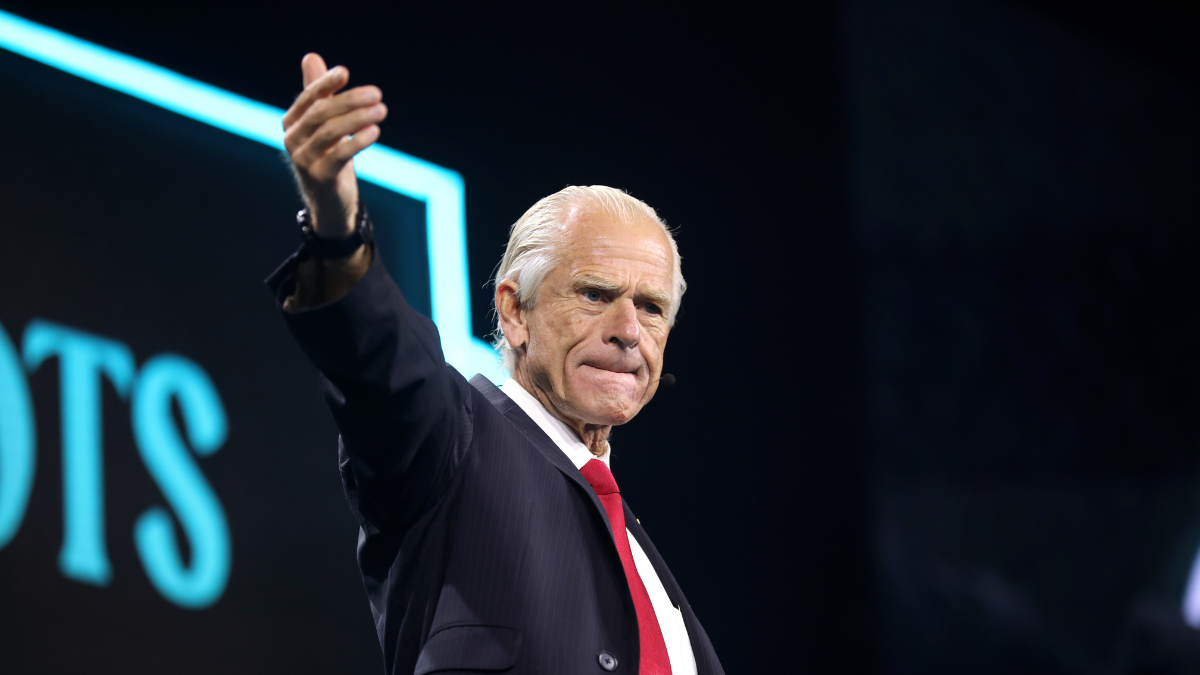


The following is an adapted excerpt from I Went to Prison So You Won’t Have To: A Love and Lawfare Story in Trump Land.
I Went To Prison So You Won’t Have To is both a line from my speech that brought the house down at the Republican National Convention on the day I walked out of prison, and a cautionary tale about the new age of Democrat lawfare and weaponized justice that the Age of Trump has ushered in.
If they can come for me, Steve, and President Trump — along with Jeff Clark, John Eastman, Rudy Giuliani, Dan Scavino, Mark Meadows, Jenna Ellis, Peter Clark, Boris Epshteyn, and other Trump associates — they can come for you.
As a matter of simple math, virtually everyone involved in putting me behind bars was a Democrat: A Democrat House Majority, a Democrat-run Department of Justice, Democrat judges, and a Democrat jury.
Consider the Kafkaesque world of lawfare I would be hit with by these partisans: More than a million dollars in legal fees and deprived of four months of my freedom — all because I honored the president’s invocation of executive privilege and oath of office.
It started with an illegal subpoena I received from the House Select Committee to Investigate the Jan. 6 attack on the U.S. Capitol. This J6 Committee was an illegally formed and unduly authorized committee, cobbled together by Speaker Nancy Pelosi after she vetoed two of House Minority Leader Kevin McCarthy’s appointees. McCarthy then stupidly withdrew the rest, leaving Pelosi free to stack the committee with hand-picked Trump-haters.
As a senior White House advisor, I knew it was my constitutional duty not to appear before that J6 witch hunt. President Trump had invoked executive privilege, and more than 50 years of Department of Justice precedent supported absolute testimonial immunity for senior presidential advisors. Don McGahn, Rick Dearborn, Kellyanne Conway, and Rob Porter had all refused to testify before hostile committees without ever facing contempt charges.
Nonetheless, the J6 Committee — driven by raw partisanship — pushed ahead. It voted to hold me and Dan Scavino in contempt, forwarding charges that carry up to two years in prison and steep fines.
That’s when Merrick Garland’s DOJ, through Biden’s hand-picked U.S. Attorney for D.C., Matthew Graves, crossed the lawfare Rubicon. Ignoring 50 years of precedent, they convened a grand jury and engineered my indictment.
What followed was an outrageous circus arrest: Five armed FBI agents ambushed me at Reagan National Airport, surrounding me and my fiancée in the Jetway. They leaked the arrest to the press beforehand, denied me the chance to call a lawyer, and confiscated my phone.
Later, thanks to Sen. Chuck Grassley’s oversight efforts, we learned that FBI agents involved in my arrest — including the now disgraced Walter Giardina — were gleeful at the chance to “take me down.”
My fiancée — who had nothing to do with any of this — was publicly perp walked in the process.
Here’s the kicker: I lived directly across the street from FBI headquarters. They could have quietly called me in. In 99.9 percent of non-violent white-collar cases like mine, DOJ simply asks the defendant to self-surrender.
Not me. The message was clear: Flip on Trump or rot. There was nothing I could “flip,” but intimidation was the point.
From there, lawfare turned financial. My legal battle consumed over a million dollars — exactly what the left wanted. One aim of lawfare short of prison is to bleed the target dry.
Fundraising was its own ordeal, and hiring counsel was even harder. Big-law firms in D.C. threatened to fire any partner who dared defend a Trump associate. Making matters worse, prosecutors exploited conflicts rules to further shrink the available legal talent pool.
Inside the courtroom, Judge Amit Mehta — an Obama appointee — refused to allow discovery on selective prosecution and other issues. He shielded the DOJ from having to explain why Meadows and Scavino weren’t charged, despite circumstances nearly identical to mine.
Mehta also scurrilously stripped me of every substantive defense, including separation of powers and executive privilege, hiding behind an arcane district ruling. Never in my wildest dreams did I ever imagine I wouldn’t even be able to offer a defense.
When my trial began, the outcome was preordained. Prosecutors Elizabeth Aloi and John Crabb recycled boilerplate speeches meant for violent J6 rioters, as if my case were about insurrection rather than executive privilege.
The jury pool? Ninety-plus percent Biden voters. The judge let openly anti-Trump jurors serve, while prosecutors struck anyone who might lean my way.
At one point, the judge even let the jury take a “break walk” past protestors outside clamoring for my head. Ten minutes after their stroll, the “guilty” verdict was in. Motion for mistrial: denied.
At sentencing, despite strong arguments for probation, Judge Mehta sentenced me to four months in prison. He also refused to let me remain free pending appeal, even though my case raises landmark constitutional issues of first impression.
Then came the appeal — a farce in the D.C. Circuit. A three-judge panel, all Democratic appointees, brushed aside my case as “insignificant.” One or both of those judges, Cornelia Pillard and Patricia Millett, have shown up on panels hearing my case and Steve Bannon’s.
Random judge selection? Hardly. The D.C. Circuit has become a lawfare factory. To call it a “kangaroo court” insults kangaroos.
I keep fighting my appeal, even though there’s nothing left in it for me personally. I’ve done my time.
Why do I fight on? Because if I lose, every senior White House advisor — Republican or Democrat — will face the same Hobson’s Choice I did: honor the Constitution and risk prison, or bend the knee to partisan inquisitors and betray the republic.
